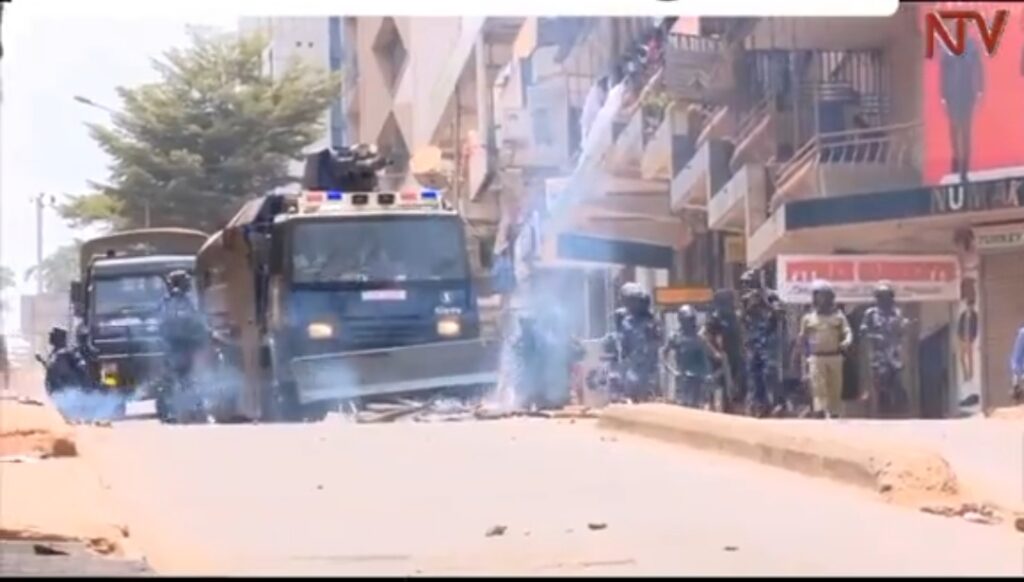The situation in Uganda has become increasingly tense as protests erupt across major cities. The demonstrations, sparked by a variety of grievances including economic hardship, political oppression, and allegations of corruption, have drawn thousands of people to the streets.
The protesters are demanding significant reforms and greater accountability from the government, which they accuse of neglecting the needs and rights of ordinary citizens.
In response to the growing unrest, the Ugandan police have been deployed in large numbers to quell the demonstrations. Reports indicate that the police are using excessive force to disperse crowds, including the use of tear gas, rubber bullets, and water cannons.
Eyewitnesses have described scenes of chaos and violence, with many protesters being beaten and arrested. The heavy-handed tactics have only served to fuel the anger and resolve of the demonstrators, leading to a cycle of escalating confrontations.
Human rights organizations have condemned the actions of the Ugandan police, calling for an immediate halt to the violence and for the government to respect the right to peaceful assembly. They argue that the brutal crackdown on protesters is a clear violation of international human rights standards.
The organizations are also urging the international community to put pressure on the Ugandan government to address the root causes of the protests and to engage in dialogue with the opposition.
Amid the turmoil, the economic impact of the protests is becoming apparent. Businesses are closing, transportation is disrupted, and daily life for many Ugandans is increasingly difficult.
The unrest is exacerbating the already precarious economic situation in the country, where many people are struggling to make ends meet. The government’s response to the protests will be critical in determining the future stability and prosperity of Uganda.
Political analysts suggest that the protests in Uganda are part of a broader trend of increasing dissatisfaction with authoritarian regimes in Africa.
They note that similar movements have emerged in other countries on the continent, driven by a combination of economic woes, lack of political freedoms, and widespread corruption.
The outcome of the Ugandan protests could have significant implications for the region, potentially inspiring similar actions in neighboring countries.
As the situation unfolds, all eyes are on the Ugandan government and its next steps. The international community is watching closely, and there is hope that a peaceful resolution can be found.
However, the continued use of violence against protesters risks further entrenching divisions and pushing the country into deeper turmoil. The coming days and weeks will be crucial in shaping the future of Uganda and its people.


